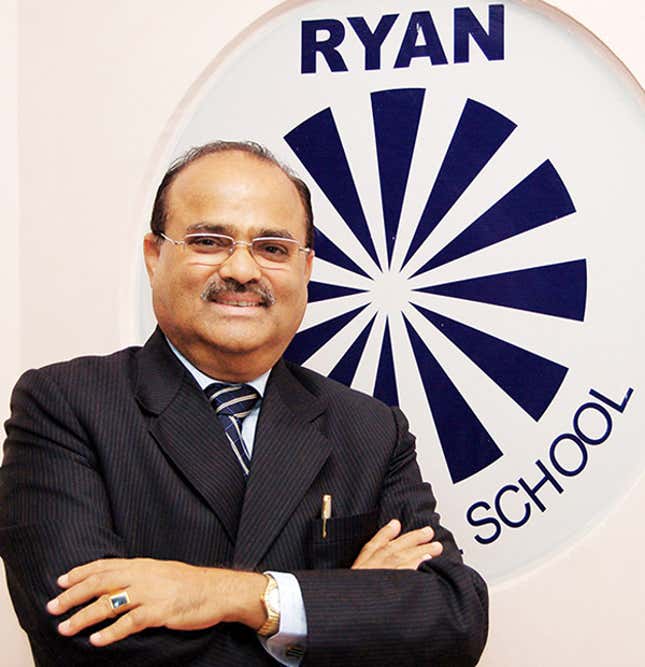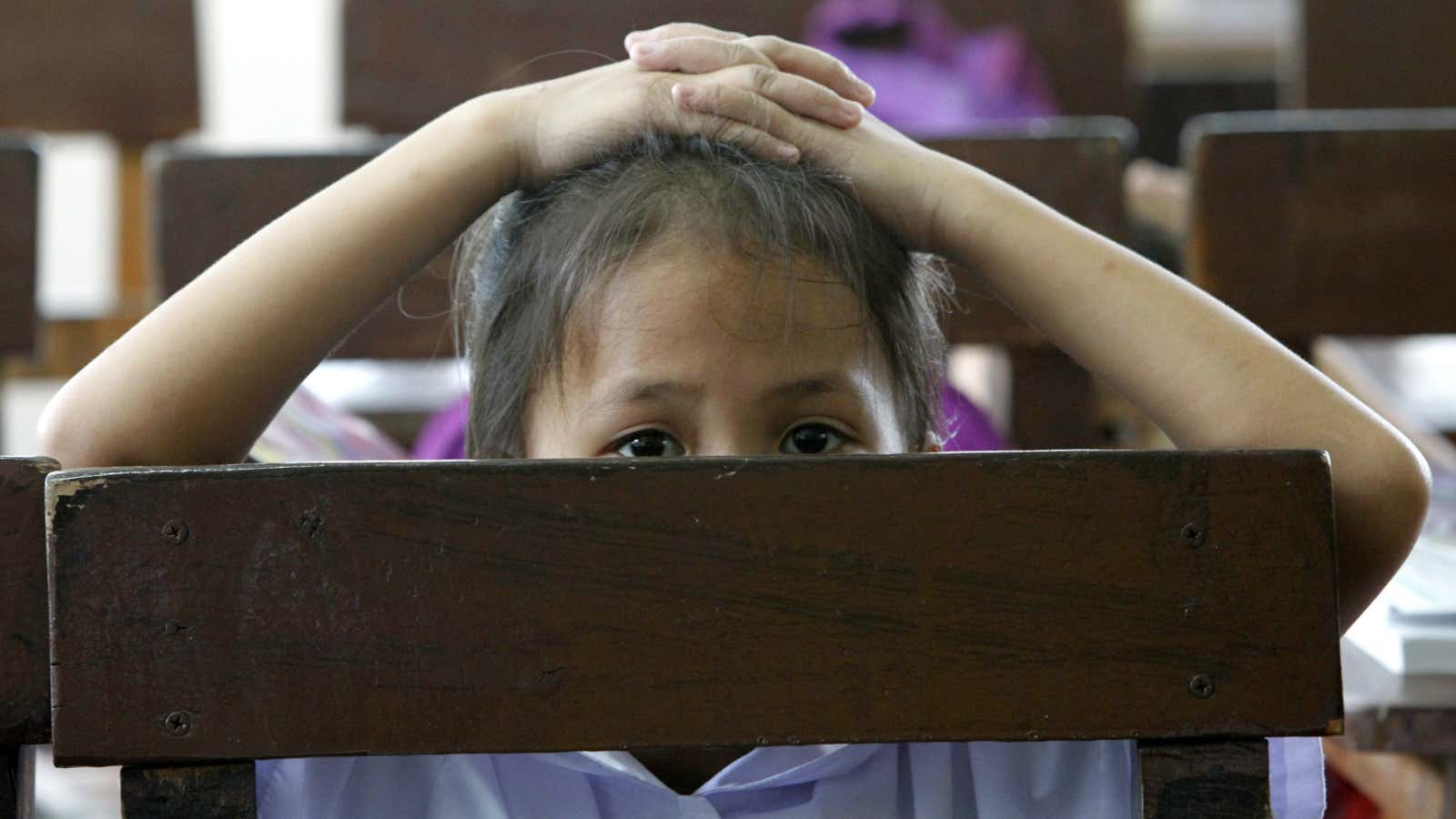It’s been a chaotic few days at the Gurugram campus of Ryan International School.
The murder of a class 2 student, allegedly by the conductor of a school bus has kicked up a storm, with parents and local residents coming out onto the streets in protest. And this is not the first time that the Ryan International Group of Institutions (RIGI) has courted controversy.
In January 2016, one student at a branch of the school in New Delhi died after falling into a water tank in the institution’s premises. One class 3 student of the Gurugram campus died in May 2016 after she was hit by a vehicle when a school bus dropped her on the wrong side of the road. In 2015, the school allegedly ran a membership drive for prime minister Narendra Modi’s Bharatiya Janata Party (BJP), evoking howls of protest.
Controversies apart, the RIGI institutions remain some of the most popular among parents in India.
One of India’s fastest growing chains of educational institutions, RIGI employs 15,000 faculty members at over 130 schools. These campuses are spread over 18 states in India and five in west Asian countries. The group has some 300,000 students and opens four to five new campuses almost every year.
Yet, Ryan International School began as a failed venture school near Borivali, a suburb of Mumbai.
From Mumbai to the world
Ryan Group of Institutions was founded by AF Pinto in 1976.
The son of a farmer from Mangalore in Karnataka, Pinto graduated in economics from Chennai’s prestigious Loyola College in 1969. Soon he joined Bharat Swiss Plastics, a footwear company in Mumbai, as an administrative clerk. But he lost his job within two years as the company was liquidated.
With some help from a friend, Pinto joined a school in Malad, another suburb of Mumbai, as a temporary primary teacher. “While at this school I developed an affinity for teaching children,” Pinto told the Education World magazine in 2008. “Moreover I was also inspired by the dedication and commitment of Mrs Sequeira, principal of the school, who went from house to house in a bullock cart to persuade parents to send children to her school, which she started in single room with a first batch of 12 students. It then occurred to me that if this frail old lady could have built up a fully-fledged school from scratch, so could I.”

In 1974, Pinto met and married Grace Albuquerque, a maths and science teacher who is now RIGI’s managing director. Together, in 1976, they set up Father Agnelo Primary School in Borivali East with a capital of Rs10,000. The school, however, failed to take off and Pinto returned as a full-time teacher at St Francis School, Malad. By 1983, the entrepreneurial bug was back and the Pintos set up St Xavier’s High in Borivali.
Since then, RIGI has expanded remarkably, growing on to setting up over 300 schools across the world. While Pinto and Grace continue to serve as founding chairman and managing director, respectively, their son Ryan handles day-to-day functioning as group CEO.
Talking about his initial days, Pinto said in 2008:
“By then following my involvement with the promotion of several primary and secondary schools, I was fully aware of the massive pent-up demand for good quality English medium education in the fast expanding suburbs of Mumbai. With land prices in south Mumbai rising continuously, I was very conscious that the city’s new middle class would move to the suburbs and that the centre of gravity of the city itself was moving north. I believed—as I still do—that I had a social obligation to provide high quality primary and secondary education for this new middle class which would drive the country’s growth and development. Therefore right from the start of my entry into school education I was determined to expand the scale of operations by continuously promoting new institutions.
Controversies galore
Over the past few years, however, the group has constantly faced one row after another.
In 2015, Grace, along with her husband, were hauled up by the market regulator for evading taxes. The Securities and Exchange Board of India (SEBI) named the duo in a Rs1,800 crore tax-evasion case.
The same year, the group came under criticism for allegedly forcing its staff, students, and their parents to take up primary membership of the BJP. The management, however, denied the allegations. “Yes, the membership drive was launched within the campus but it was absolutely voluntary. No one was forced to do so. Additionally, the management never asked students and parents to join the BJP,” Grace had told Firstpost.
Now, with the police knocking at the doors yet again, the reputation that Pinto has built over the years seems at stake.
